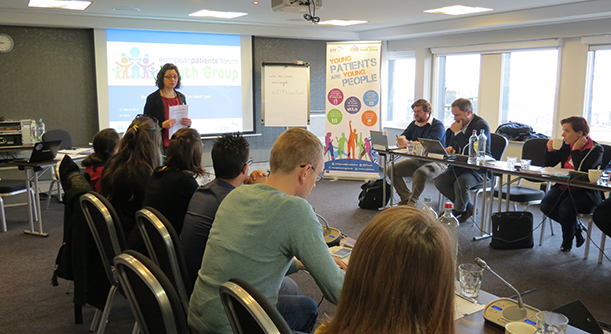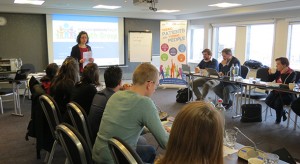EPF is proud of its members’ and their work. We are delighted to feature one of our 67 member organisations on our blog and share their successes and achievements. This month we interviewed Jana Moravcova, Advocacy Officer at the International Federation of Spina Bifida and Hydrocephalus (IF), just elected as EPF member in March!
- What’s on the top of your agenda?
Our three strategic objectives for 2015-2017 are primary prevention of neural tube defects (NTDs) and hydrocephalus; the right to health and access to healthcare; as well as building a strong community of persons with Spina Bifida and Hydrocephalus (SBH) and their families. In the European context we focus on advocacy for right to health of persons with SBH and empowering our members through workshops, webinars, and community building.
- Why does your organisation exist?
IF exists to make the voice of people with SBH heard, to advocate for their rights and to consolidate a strong supportive network of persons with SBH, their families, caretakers, healthcare professionals, researchers, etc. IF aims at building the capacity of its members on human rights and the Convention on the Rights of People with Disabilities (UNCRPD). We also support our members with projects and advocacy and representing them at European and international levels.
- What is your biggest achievement as an organisation?
IF’s fast-growing expansion in Europe and beyond strenghtened through community building activities, workshops and international conferences is a big achievement for us. It shows that IF responds to a need from the community and gives us a chance to improve access to healthcare of more persons with SBH. Also, the work of IF in developing countries brings new insights into care in the developed world.
- What is for you the key benefit of your organisation’s involvement in EPF?
We expect to have a stronger and more coordinated voice on health policies and issues related to care and involvement of persons with disabilities. Their empowerment is a key area for us as we want to make our members – persons with SBH and their families – stronger and more confident self-advocates. IF is also a member of the European Disability Forum, which enables us to work on the promotion of rights for people with disabilities from a human rights’ perspective, while EPF focuses on public health and social care for patients. Our membership in EPF and EDF are complementary.
- What’s the main misconception about your disease area?
IF advocates for primary prevention of neural tube defects through mandatory food fortification; we do not consider abortion a form of prevention. Food fortification with folic acid is the only primary prevention method that reaches all women of childbearing age and according to statistics reduces the incidence of SBH affected pregnancies.
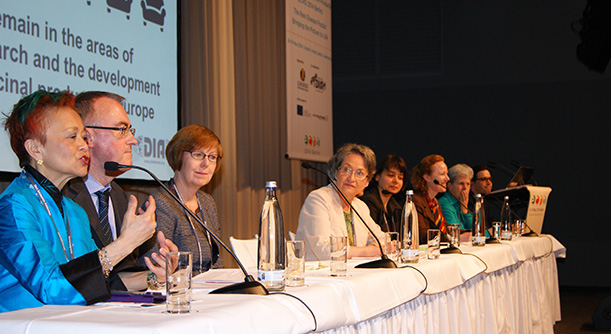
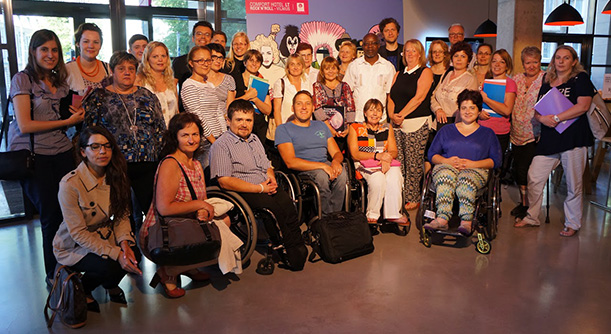
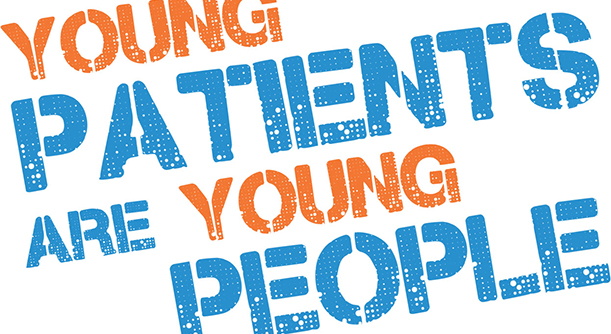
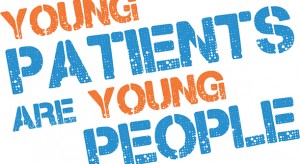 On 19th and 20th March, the EPF Youth Group gathered in Brussels for its two-day Spring Meeting to discuss key issues, such as capacity development, preparatory work for the Roundtable on Transition to Adult Care and for the Youth Group’s participation at the European Youth Event in May 2016 (#EYE2016).
On 19th and 20th March, the EPF Youth Group gathered in Brussels for its two-day Spring Meeting to discuss key issues, such as capacity development, preparatory work for the Roundtable on Transition to Adult Care and for the Youth Group’s participation at the European Youth Event in May 2016 (#EYE2016).